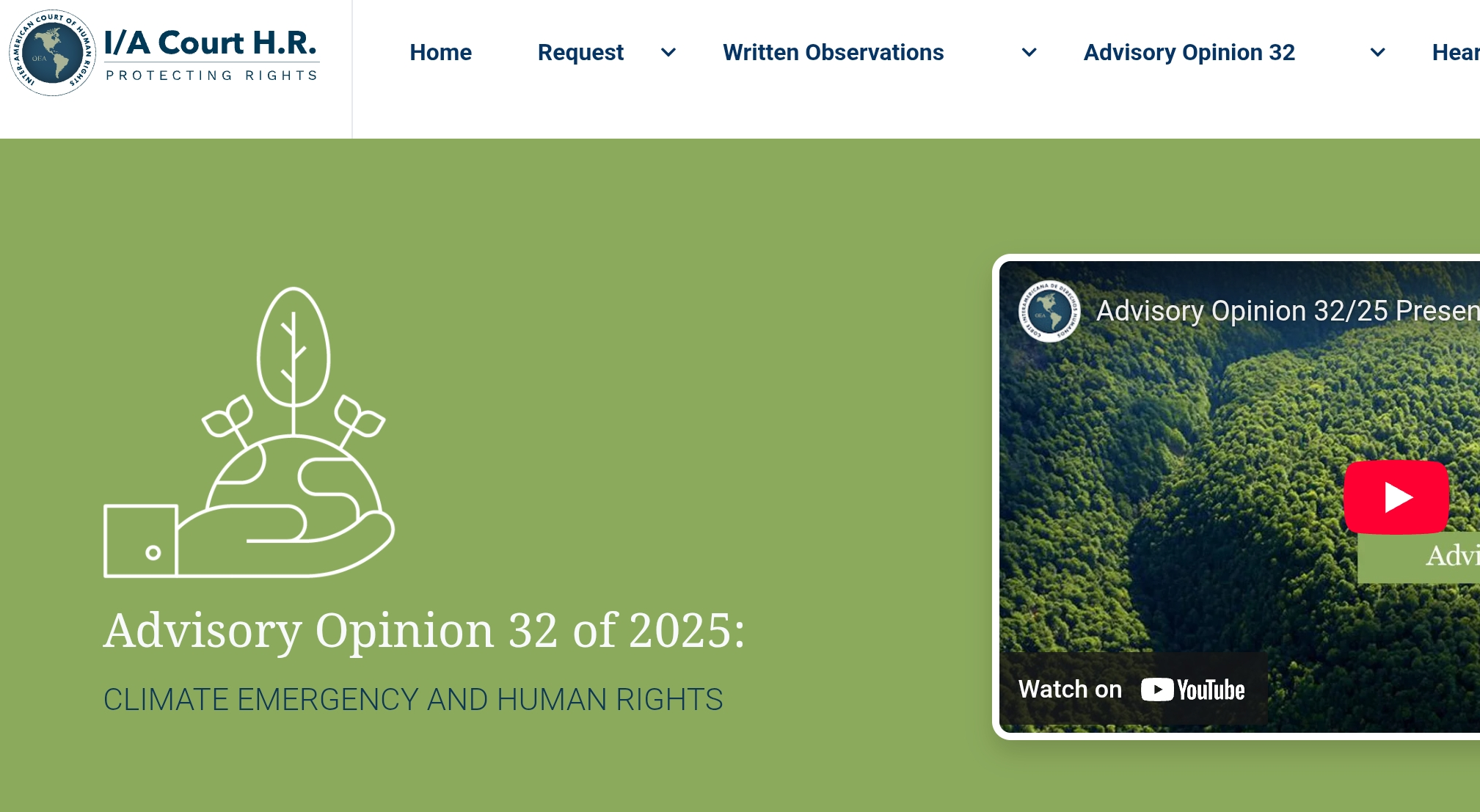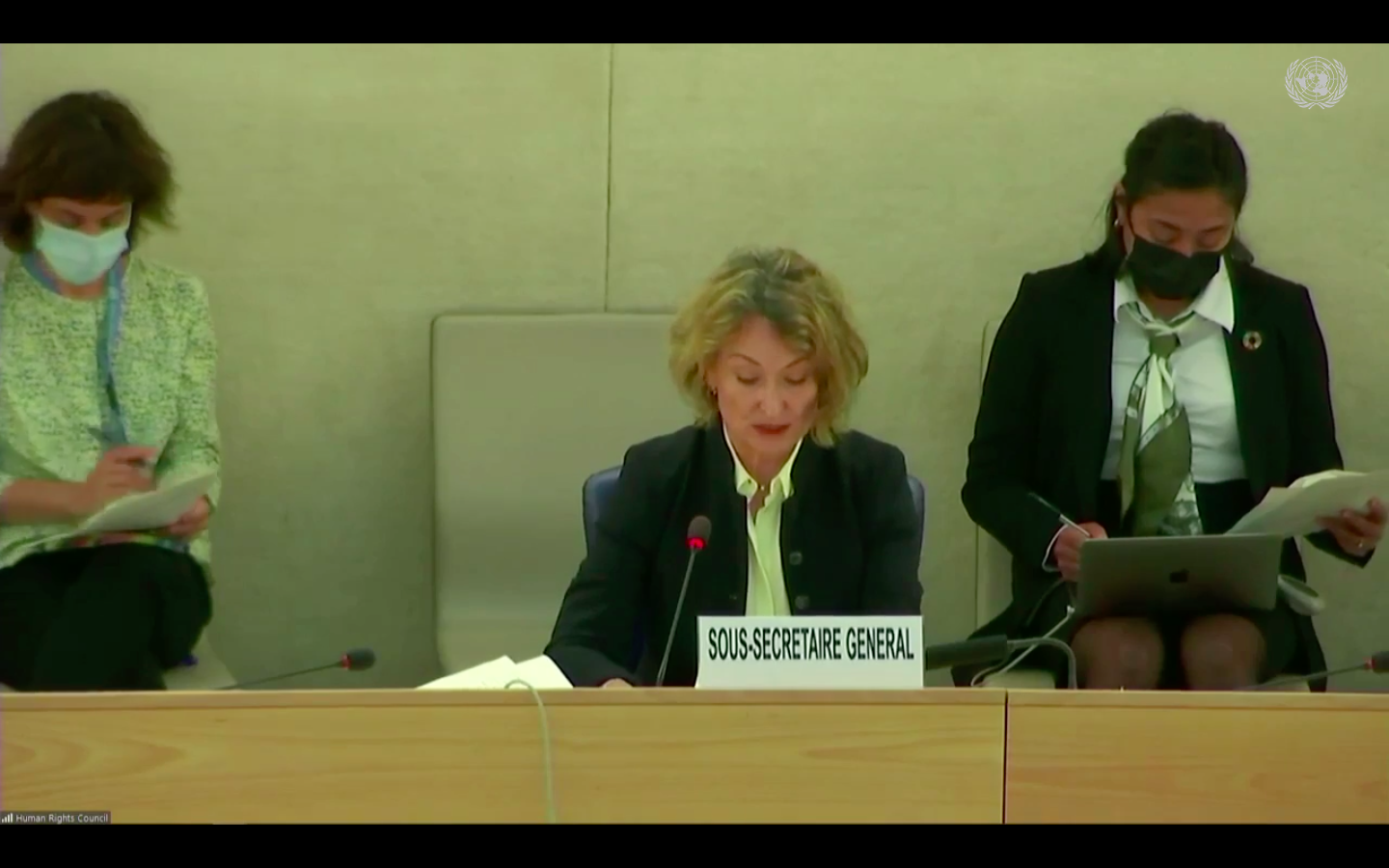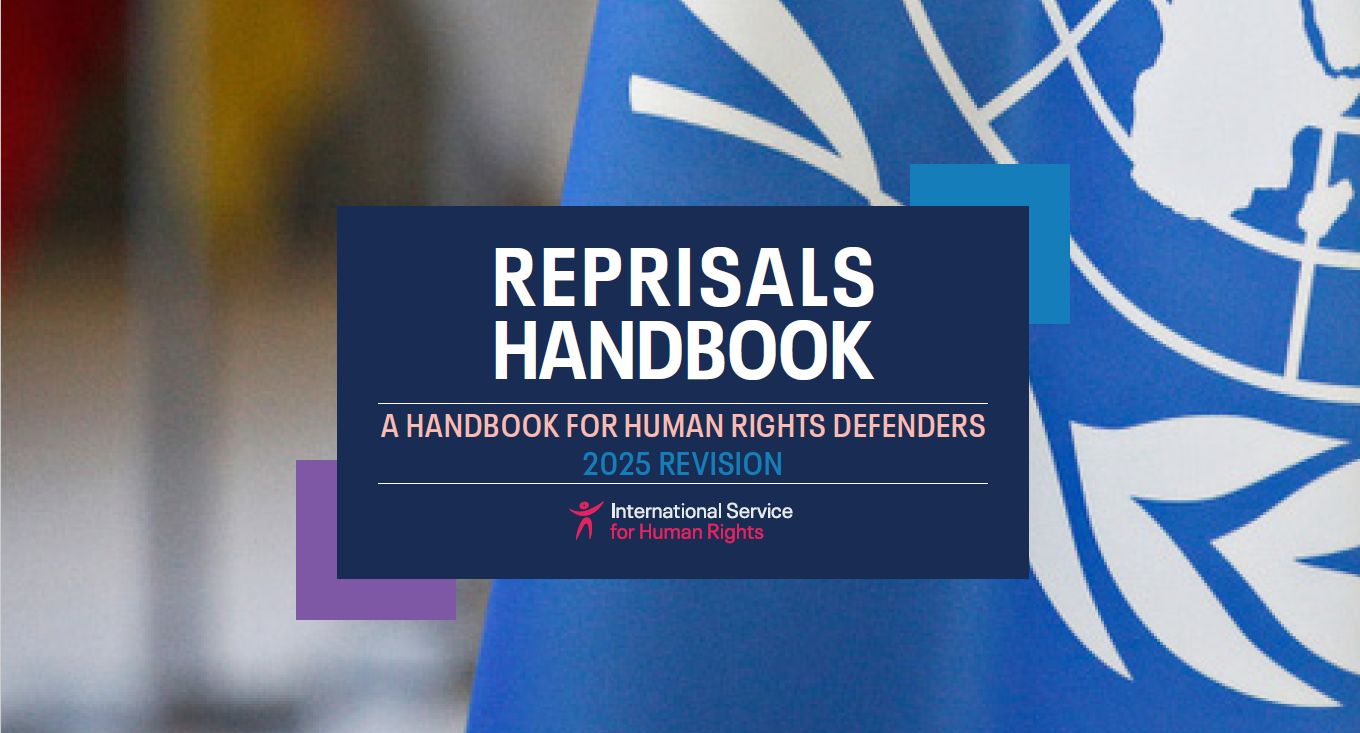For the first time, the General Assembly met on 14 October 2022 to discuss the annual report of the Secretary-General on reprisals [A/HRC/51/47], giving all Member States the opportunity to engage with the report. Until now the report had only ever been discussed by the Human Rights Council in Geneva, and the Commission on Human Rights before it.
The report documents how reprisals in the form of threats, intimidation, legislative restrictions, misuse of counter-terrorism laws, surveillance internet blackouts, and arbitrary detention have been used in 42 countries to deter and punish human rights defenders for cooperating with the UN mechanism. Around 60% of the nearly 350 individual cases concern women.
The Assistant Secretary-General (ASG), and senior official on reprisals, Ilze Brands Kehris, presented the report.
During the presentation of the report, multiple States including Switzerland, the USA, the UK, and Ireland made strong statements in support of the report on reprisals. However, a number of States vehemently rejected the report, including by Democratic People’s Republic of Korea (DPRK) and Belarus, claiming the data to be outdated or based on false testimonies. Meanwhile, the DPRK is not even cited in this year’s report, demonstrating once again a serious shortcoming of the report—in that it does not effectively document self-censorship by civil society in States in which intimidation has ‘worked’ to sustain inhibition and it is very difficult or impossible for civil society to engage with the UN at all. This was the topic of a study carried out by ISHR in 2020 ‘Intimidation and its Impact on Engagement with the UN Human Rights System: Methodological challenges and opportunities’.
In response to the queries and concerns raised by States, the ASG expanded on the current established practice of systematic reporting on reprisals through a more robust follow-up and collaboration process within the UN, along with the need to increase the number of States supporting the resolution as well as engaging with the mandate. In conclusion, the ASG stressed the need to focus on both the protection and prevention of reprisals through best practices as noted in both current and previous reports. Finally, the ASG shared that the mandate plans to establish a methodology to monitor patterns of reprisals.
Download as PDF




